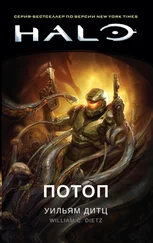Like the Vagabond Army Heliport, the city had been forced to limit power to a couple of hours per day, and the electricity wasn’t scheduled to come on until 1800 hours. That was devastating for the business community, which had been forced to lay people off. And if people couldn’t buy things, they would eventually try to take them. Then what?
The question went unanswered as Garcia turned off North Second. Wylie’s office was located in a complex that was surrounded by parking lots and deciduous trees. Mac noticed that in spite of the fact that it was summer, all of them had shed their leaves.
The Humvee came to a stop, and they got out. Mac turned to Atkins. His job was to guard the vehicle. “Keep your eyes peeled,” Mac cautioned. “And holler if you see anything suspicious.”
Atkins’s face was nearly invisible thanks to cold-weather gear and a pair of goggles. She saw him nod. “Yes, ma’am.”
Mac led the tiny detachment into the building’s lobby, where two bored-looking cops were waiting to receive her. That was new and a sure sign of trouble. “I’m Lieutenant Macintyre,” she told them. “I have an appointment to see Mr. Wylie.”
One of the policemen consulted a clipboard. His breath fogged the air. “Right… You can go up. But you’ll have to leave the sidearm and the soldiers here.”
“That isn’t acceptable,” Mac responded. “Please inform Mr. Wylie that I attempted to see him. Have a nice day.”
“Whoa,” the second man said. “There’s no need to get your panties in a knot… I’ll check with Mr. Wylie’s assistant.”
Mac waited while the policeman mumbled into a radio and wasn’t surprised when the verdict came in. “Sorry,” the cop said stiffly. “But we have to be careful these days… And just because someone’s wearing a uniform doesn’t mean much. You can go up.”
Mac thanked him and followed a series of hand-printed signs past the elevators to a door marked EXIT. A flight of stairs led up to the second floor and another fire door. It opened into a hall that led past the restrooms to an open area and a dozen cubicles. The room was lit with jury-rigged work lights. And while the air wasn’t warm, it wasn’t cold either, thanks to a pair of space heaters.
Wylie’s assistant was there to receive the visitors. Her name was Martha Cobb. She was a pleasant-looking woman with nicely styled hair, chiseled features, and a confident manner. “Lieutenant Macintyre! It’s nice to see you again. Mr. Wylie is in his office. Would you care for tea or coffee?”
“It’s good to see you as well,” Mac replied. “I’d love a cup of coffee—and I’m sure my men would appreciate some as well.”
“I’ll take care of it,” Cobb promised. “Please follow me.”
Mac removed her jacket as Cobb led her past the cubicles to the corner office where Wylie was waiting. He was a big man with thinning hair, beady eyes, and a pugnacious jaw. He circled the desk in order to shake hands. Mac felt his hand swallow hers and felt lucky to retrieve it. “Good morning, Lieutenant,” Wylie said, “and thanks for coming. Please, have a seat.”
“It’s my pleasure,” Mac lied, as she took a seat at a small conference table. “What can I do for you?”
Wylie was direct if nothing else. “Don’t be coy, Lieutenant. You know what I need… And that’s fuel.”
“The vast majority of the training center’s fuel was taken east,” Mac reminded him. “But yes, I have some. Not enough to solve your problems though… And, once orders come in, we’ll need what we have.”
“That’s the same line of bull you gave me last time,” Wylie said as he stared at her. “When will those orders come?”
“I don’t know.”
Wylie placed a pair of beefy forearms on the table. “Let’s be honest, Lieutenant… The whole country is belly-up! So there’s a good chance that those orders won’t arrive. And, while you sit on that fuel, the citizens of Yakima are suffering.”
“I’m sorry,” Mac replied. “I really am. But let’s keep this real. Yakima would run through my fuel in less than a week. It’s a drop in the bucket compared to what you need.”
Wylie had just opened his mouth to speak when Cobb entered, carrying a tray and two cups. “There you go,” she said cheerfully. “Please help yourselves to cream and sugar.”
Wylie thanked her and waited until Cobb had left the room before speaking again. His eyes were like chips of coal. “Listen, Lieutenant… I’m tired of playing footsie with you. Either you give 80 percent of your fuel to Yakima—or I’ll send the police over to take it away from you.”
Mac stood. Her voice was cold. “I would advise against that, Mr. Wylie… If you send your police to attack Vagabond, we will kill them. And who will protect you then?”
And with that, Mac took her jacket and left the office. Cobb looked concerned as Mac strode past her, and both soldiers stood. Mac paused to let them gulp the rest of their coffee before leading them to the stairs. The meeting was over.
In the wake of the face-to-face with Wylie, Mac had no choice but to put her tiny command on high alert. An observation post was established on the east side of the freeway, some of the platoon’s fighting positions were reinforced, and command-detonated mines were placed at key points around the perimeter.
But after three days without an attack, Mac began to relax. Then, on the fourth day, something remarkable occurred. The clouds parted—and the sun appeared! Mac felt better, and so did her troops, all of whom shed at least one layer of clothing—and went looking for opportunities to work outside. Even the normally dour Dr. Hoskins had a smile on his face.
So morale was up when the distant drone of a plane was heard, and the soldiers peered into the sky. All they could see was a dot, and a momentary glint of reflected light. Eventually, the dot morphed into a single-engine plane. It was boring in from the west, and that alone was enough to raise Mac’s spirits. Maybe, just maybe, someone had been sent to replace Captain Hollister! And that hope grew as Omata broke the news. She was tracking the plane with a pair of binoculars. “It has air force markings,” she said, “and it’s turning our way!”
The sound of the engine grew louder as Mac turned to Peters. “Get on the horn,” she told him. “See if you can make contact.”
Peters entered the Flight Control Center as Omata continued to eyeball the incoming aircraft. “It’s a T-41 Mescalero,” the pilot said. “I learned how to fly in the civilian version. Uh-oh… I see what could be bullet holes.”
Peters was back. “The pilot isn’t responding, Lieutenant.”
Mac turned to Evans. “Find Hoskins and take some people down to the airstrip. Roll the crash truck. The pilot could be wounded.” Evans shouted orders as he ran.
Now Mac could see the white-over-blue prop plane more clearly as it circled the base. “He’s checking us out,” Omata observed, “trying to make sure that we’re military.”
That made sense given current conditions—and Mac continued to watch as the plane turned into the wind. “He’s going to land,” Omata predicted, and she began to run. Mac was right behind her.
The runway had never been long enough for anything other than light planes. That was one of the reasons why Vagabond had been redesignated as a heliport. But Mac figured that if any plane could land there, the Mescalero could. The trainer was about fifteen feet off the ground as the women arrived at the edge of the runway.
Everything looked good at first, and Mac thought the Mescalero was going to make a textbook landing, when the right wingtip came down. It hit the ground, threw the plane into an uncontrolled loop, and razor-sharp pieces of metal flew through the air as the prop shattered. The officers hit the dirt, and metal screeched as the fuselage skidded to a halt.
Читать дальше
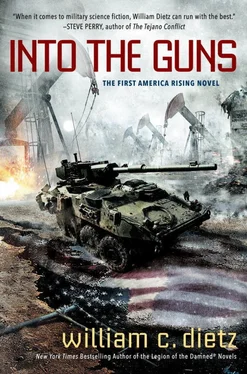
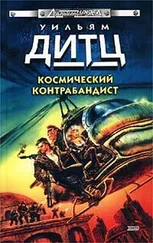
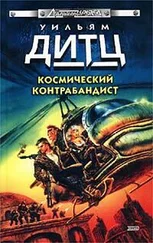
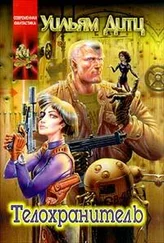
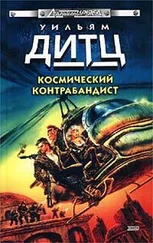
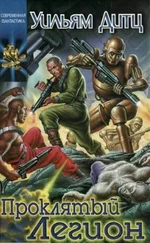
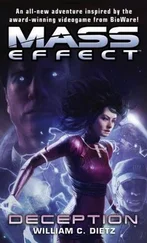

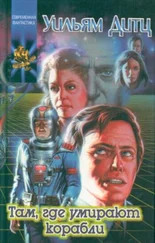
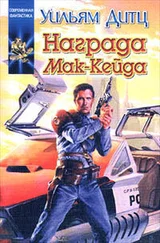
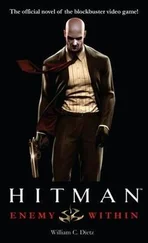
![Уильям Дитц - Избранные произведения в одном томе [Компиляция]](/books/389750/uilyam-ditc-izbrannye-proizvedeniya-v-odnom-tome-k-thumb.webp)
